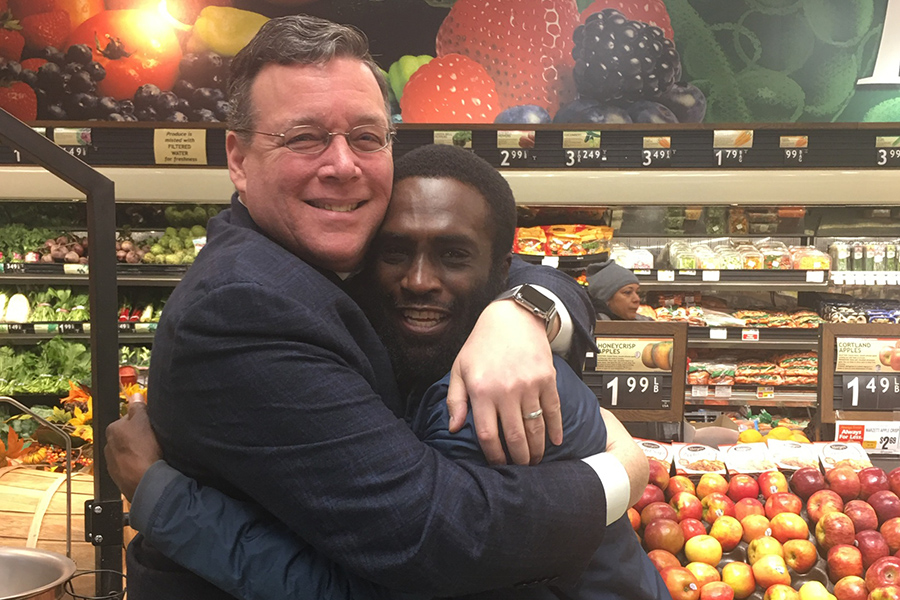When fourth-generation grocer and YPO member Jeffrey Brown opened his first store in 2004 in a low-income Philadelphia neighborhood with a history of gun violence and hired several returning felons to work in it, most people thought he was crazy.
Fifteen years later, he’s CEO and president of Brown’s Super Stores, which ranks in the top 50 U.S. small grocery chains and reports sales of approximately $500 million. Of his 12 stores, six of them are successful food desert stores located in urban neighborhoods previously without access to fresh fruits, vegetables, and other whole foods.
Food deserts affect 25 million Americans in 6,500 urban and rural areas. Lack of access to affordable healthy food contributes to high levels of obesity and other diet-related conditions, such as diabetes and heart disease. Brown is changing that.
Other grocers had tried but quickly failed where his stores thrive. Brown credits his success to listening to the community before he builds. Then, in addition to beautifully designed stores and affordable fresh foods, he brings jobs, community services, health care, nutritionists, and social workers to his stores.
“My father showed me that there are business opportunities in underprivileged communities and the importance of learning about their food cultures,” Brown explains. “The more I learned, the more concerned I became about the incredible challenges our customers face because of the zip codes they were born into. I wanted to find a way to change that.”
The first food desert ShopRite operated by Brown’s Super Stores replaced a store that was doing $100,000-$150,000 a week. “We opened doing $700,000 in the first week,” he recounts. “That caught the attention of public officials who were willing to help us continue with this work.”
Before opening his first store in the community of Southwest Philadelphia, Brown held several Town Halls attended by nearly 1,000 people. He wanted to learn about community members’ backgrounds, religion, family origins, and what they wanted in a grocery store. Prior to the opening of his North Philadelphia store, more than 3,000 turned out for the community meeting.
As he drilled down further into the cultures and religions of the area, Brown says, he brought in more culturally relevant products. “We added a department devoted to Halal food. People from Africa wanted a flour called fufu; people from the South missed sweet potato pie. We make the pies in our kitchens and carry the various products from the diverse heritages of our customers.”
“The role our fathers and mothers played in trying to solve social problems was to make a lot of money and when close to death, give to a nonprofit,” Brown explains. “That model is not likely to lead society to positive changes.”
Instead, he says, entrepreneurs should ask, “How can I bring my problem-solving abilities to help overcome the many challenges in society? You are showing your team how to be about more than just making money. This enhancement in the model, often referred to as social entrepreneurship, is a promising way to address society’s most pressing challenges such as poverty.” n
Mary Sigmond is editor in chief of YPOs Ignite digital magazine. YPO is the global leadership community of more than 29,000 chief executives in 130 countries who are driven by the belief that the world needs better leaders.




































